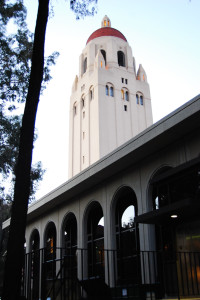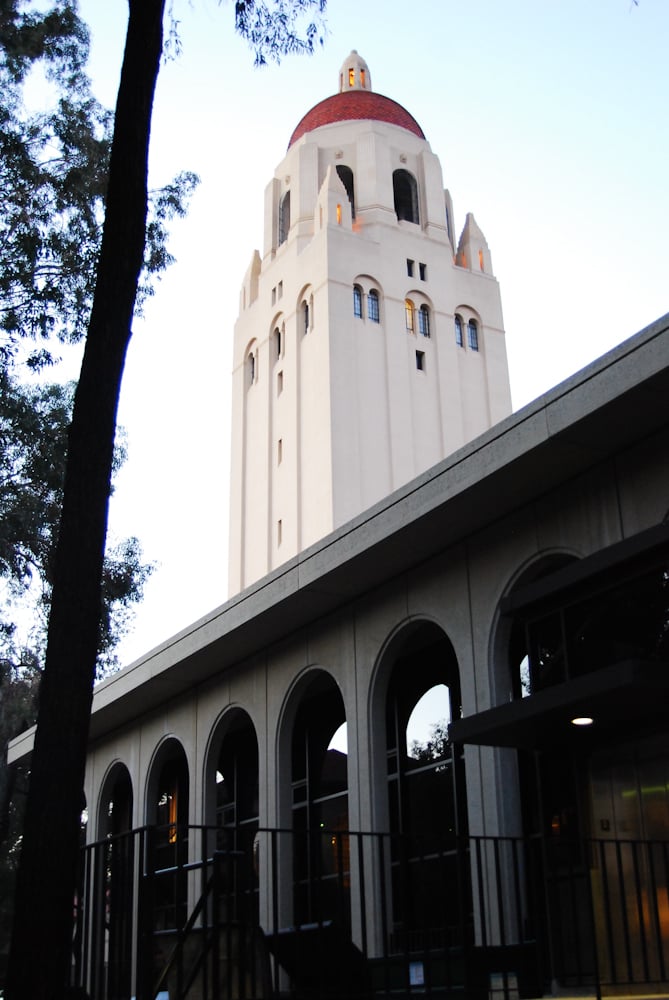Hoover Archives mistakenly displayed classified docs, FBI investigation leads to removal
The Hoover Institution unwittingly displayed classified documents to the public in a collection donated by James Hitselberger, a linguist contracted by the Navy, according to an Aug. 6 affidavit filed by the FBI. The affidavit was unsealed on Nov. 5.

Hitselberger was charged on two counts of unlawful retention of national defense information under the Espionage Act, for which he pleaded not guilty on Oct. 26.
The information in question came from several documents, some of which were reports from the Joint Special Operations Task Force, and one of which was a regional analysis conducted by the Navy Central Command.
An investigation conducted jointly by the FBI and the Naval Criminal Investigative Service (NCIS) yielded the information that four documents with secret classification had been stored in public and private sections of the Hoover Archives.
Hitselberger, a Georgetown graduate in Arabic and history, worked as a linguist for the communications company Titan Corp. in a variety of “forward operating locations” in Iraq from October 2004 to February 2007. After a hiatus from translating, he resumed linguistic work in June 2011 with Global Linguist Solutions (GLS), a Virginia-based contracting company that provides linguistic support for the U.S. military effort.
After receiving counterintelligence screening from GLS, Hitselberger was deployed to Bahrain in September 2011 to support the Joint Special Operations Task Force-Gulf Cooperation Council (JSOTF). He served as a translator and was privy to raw intelligence data in Arabic.
“Through this data, Hitselberger obtained intimate knowledge of sensitive source operations, including true names and addresses of sources,” the affidavit claims.
Lost documents and travels
On April 11, 2012, Hitselberger was observed by two of his supervisors printing two documents classified as secret in the JSOTF restricted access area and then putting them in his backpack and leaving the office, an action for which he was not authorized.
He was followed and confronted and he gave up the documents after a discussion with two of his superiors. This purported attempt to take the documents prompted a search and seizure of Hitselberger’s living quarters, which resulted in the discovery of a part of another confidential document that was later found to be a report on U.S. forces and their activities in the region.
The document had been manually altered in such a way that the classification markings in the header and footer had been removed. In two interviews with Hitselberger conducted by NCIS agents he claimed ignorance about the classification of the documents and said he had printed the materials to read in his quarters.
Due to security concerns, on April 12 Hitselberger was removed from Bahrain by GLS after a request from JSOTF to have him replaced. On a layover in Germany on the same day, he “abruptly changed his travel plans and left the airport.” According to a GLS security officer, Hitselberger was “highly deceptive” with GLS as to his travel plans and eventually, according to information from his email accounts, was found to have subsequently traveled to Sweden, Malta, Bulgaria and Albania.
Classified materials in the archive
It was in the interviews conducted by the NCIS that Hitselberger informed the authorities of his collection at the Hoover Archives.
On an unspecified date “agents visited the Hoover Archives and reviewed the collection. In an area open to the public, the agents found a classified document titled, ‘Bahrain Situation Update’ dated Feb. 13, 2012.”
The document was altered similarly to the one in Hitselberger’s room, and another similar document was found in the Hoover Archive’s public collections. In the nonpublic areas, “agents also discovered two other documents marked secret” and a correspondence between Hitselberger and the former associate archivist for collection for the Hoover Archives showing that he was aware of the fact that the document was classified.
FBI agents later interviewed the deputy archivist at the Hoover Institute (presumed to be Linda Bernard) who, after the interview, informed Hitselberger in an email that “in light of the FBI investigation of your collection here at Hoover, we will no longer accept additions to the collection, as we don’t want to risk receiving more classified material.”
“There were classified materials? I am sure they brought unwanted excitement. Yes, there was indeed an incident in Bahrain. I was unable to locate my regular reading glasses that day over a month ago and I did not notice the ‘secret’ designation at the bottom,” Hitselberger responded, according to the FBI affidavit, which claimed his response contained “a number of falsehoods.”
Representatives of the Hoover Archives declined to comment for this article and would not discuss the details of the investigation with The Daily.
Collection contents
A Daily examination of ten of the boxes within the Hitselberger Collection showed that Hitselberger had kept a number of diverse materials over a period spanning from 1978 to 2012. The collection, which included 18 unique boxes of materials donated to the Hoover Archives, was eclectic and included materials from Iran, the United States, Iraq and Bahrain.
Hitselberger’s documents from his time in Iran mostly consisted of materials created by the Mujahadeen-e-Khalq, or the People’s Mujahedin of Iran.
The Online Archive of California’s website describe the contents of Hitselberger’s Iran folders as “broadsides, flyers, leaflets, serial issues and sound recordings, relating to political conditions in Iran under the reign of the Shah, the Iranian political opposition, the revolution of 1979, post-revolutionary conditions in Iran, and political opposition to the new Iranian regime.” Most of the materials are in Farsi.
The archive also housed a number of documents of mixed political opinions in English produced by student groups at Georgetown University, presumably from Hitselberger’s time as a student.
More recent materials included several boxes of 2006 newspapers. The majority of the periodicals kept by Hitselberger were Iraqi, Arabic-medium newspapers. Among the most common ones were Al Sabah al-Jadeed, Addustour Iraq, Al-Adala and Al-Mada.
There were also several English-medium military news materials found in Hitselberger’s collections, including Phantom News and Ivy Leaf.
The most recent boxes principally contained flyers, advertisements, Grand Prix promotional materials and emails from his time in Bahrain. The handwritten notes attached to each item seemed to suggest a disdain for Bahrain’s ruling regime and a number of documents produced by government opposition groups were also found.
One example of an email found was regarding “Joint Security Area Bahrain Liberty Policy,” which detailed security concerns and measures to be taken to prevent harm to U.S. forces, civilians and contractors in the context of anti-government protests in December 2011.
The Daily’s examination of Hitselberger’s most recent archives did not reveal any documents similar to the ones that the FBI detailed in their criminal complaint. Carol Leadenham, associate archivist, refused to comment on whether or not the relevant documents had indeed been removed from the collection.
Aftermath and extradition
After eight months, during which the FBI claims he lived “as a fugitive,” a statement Hitselberger’s counsel has strongly protested, Hitselberger was extradited from Kuwait. Although authorities were aware of his whereabouts, the countries in which he was traveling would not extradite him for a political offense.
Deborah Robinson, U.S. magistrate judge, ordered that Hitselberger be held without bond pursuant to the Order of Detention filed by the FBI.
“While the government concedes that Defendant has no history of violence and did not disseminate the classified information to a ‘foreign power,’…the undersigned finds that Defendant’s retention of classified documents poses a danger to the community by potentially compromising national security,” she wrote in a Nov. 5 memorandum of findings.
